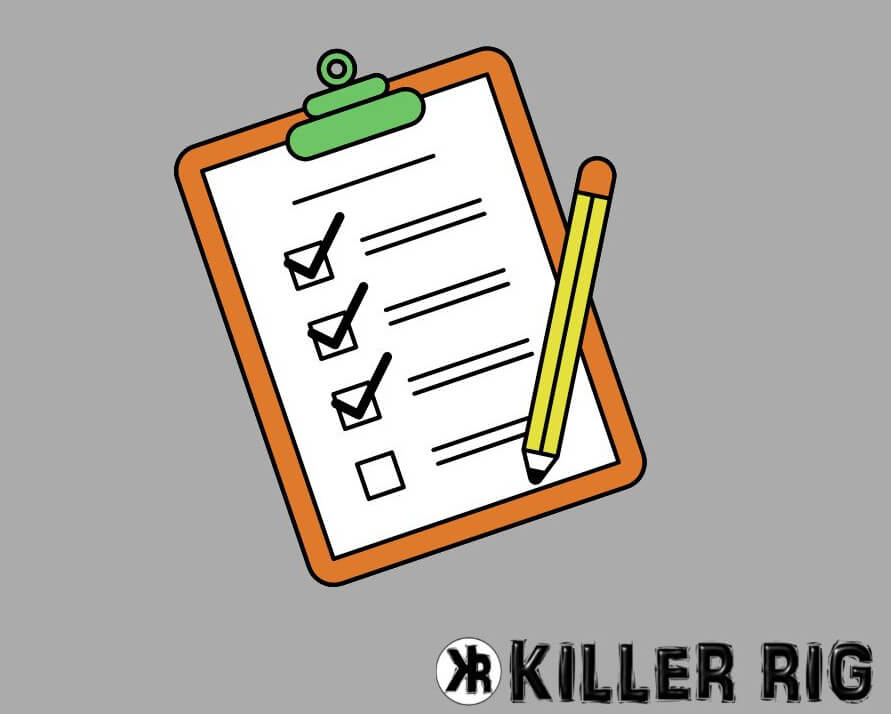Table of Contents
If there is one instrument that is iconic to most of the world, it’s the guitar. It has played a very important role in music, and for many decades.
Whether strumming out folk ballads, shredding heavy metal solos, or fingerpicking jazz chords. The guitar has versatility. This is why it’s a top pick for musicians today.
For many people, the dream of learning to play guitar is a tempting one. But is guitar easy to learn? That’s a question that has no decently straightforward answer.
In this Killer Rig article, we’ll explore if the guitar is easy and the factors that can impact learning.
We’ll also provide tips and resources for those looking to take up the instrument. This will make the biggest impact on your musical journey.
Is Guitar Easy To learn?
Any musical instrument can be learned, but it takes commitment and repetition. The guitar is no different.
In the beginning, you will find the guitar to be very difficult. This is because your fingers will need to be trained. Both to press on the strings, but also to be physically coordinated. This is probably the biggest hurdle. But it doesn’t last long if you stay the course.
Once you are playing chords and have begun to understand the basics, learning the guitar is pretty easy. It comes down to your practice schedule and ability to progress in each new part of the theory.
It’s true that the guitar is simpler to learn than many other instruments. A time frame is difficult to give because everyone is unique. But when you first start out, there are some things to think about.

Factors That Make the Guitar Hard to Learn
Everyone is different! Learning anything is never the same for two people. But there are factors that every person will have to overcome.
Physical Demands
For some people, learning to play the guitar can be more difficult due to a few reasons. One factor is the instrument’s physical needs during play. To create chords, you must apply pressure with your fingers to the strings. This means finger dexterity and training!
Some people may find this challenging. Physical limitations or weak fingers can make this quite hard.
Learning to play guitar chords and other techniques could take more time. But this is part of the journey.
Then there are calluses. Your fingertips are not used to the pressure of pushing on a string and are very soft. This means there will be some pain before calluses develop. This will be a rather large hurdle, but eventually your fingers adapt.
Once calluses develop, the pain goes away, and you can press on the strings without consequence.
Motor Skills
Another factor is the mental aspect of learning the guitar. It takes some degree of coordination and concentration to play. Some people may find it difficult to control their hands and fingers.
Especially while trying to remember chord shapes and other playing techniques. Gaining mental agility and muscle memory will take effort and time. But being able to play the guitar well requires you to pass these hurdles.
So when you try and play a note or chord and other fingers get in the way, don’t get upset.
Stay focused and remember that it’s just part of the process. Muting strings accidentally when trying to play a chord is normal!
Complex Note Layout
The guitar is a complex instrument that requires mastery of several techniques. The layout of notes on the fretboard can seem daunting at first. Every note has more than one position. This alone can make it easy to get lost in the complexity of the instrument.
You will find that learning how to play different note patterns becomes easier over time. The key is to break up the large fretboard into smaller chunks.
Focusing on mastering a few notes at a time before building up your skill set. This way, you will be able to approach more complex note patterns in an organized manner.
5 WaysTo Make Learning the Guitar Easier
Considering learning guitar? Then there are a few tips that can help make the process easier and more enjoyable.
1. Guitar Teacher or Course
Find a good guitar teacher or online course. A good teacher or course can provide structured lessons. Plus personalized feedback, and expert guidance. It can significantly impact your success and assist you in avoiding common errors.
Look for a teacher or course that aligns with your goals and learning style. Don’t be afraid to try out a few different options to see what works best for you.
This also includes YouTube videos and personalities. Not everyone will work for you. Make sure to try a few out and see who you click with most. Then follow their examples and work on progressing through their learning content.
Want to learn how many guitar lessons you will need?
2. Set Realistic Goals
Aim for the stars, but remember, they aren’t reached in a single leap. Strumming that guitar to perfection? It’s a journey. It takes a solid heap of hours and grit. Breathing room is crucial. Allow yourself to stumble, to fumble, and finally, to stand tall.
Whittle your dreams into bite-sized aims. Each practice session? It’s a step, not a marathon. And sure, try to make each day resonate with a strum, a note, a chord.
The regular rhythm of practice, it’s the secret sauce! It’s how your fingers start remembering the strings, the frets. It’s the melody of improvement, humming softly as the weeks and months roll by.
3. Find Good Learning Material
Be sure to seek out learning material. Some helpful resources are chord charts, instructional videos, and music theory tutorials.
There are lots of excellent online sources that can offer direction and inspiration. When you can, take advantage of them to make your learning more effective and efficient.
4. Make Time To Practice
One of the biggest setbacks when learning guitar is not having a practice schedule. There is no better way to improve and get past some of the difficulties than regular practice. Without a schedule, learning the guitar will just be hard.
So find some time each day to spend working and improving. This way, once you see progress, you will want to continue. If you don’t have a schedule, then you may want to find a different hobby.
Because I’ll be honest, it’s a waste of your time to even start if you don’t practice regularly.
5. Play With Others
There’s something incredibly powerful about sharing a beat with others. You grow, learn, and become a part of a resonating rhythm that goes beyond notes on a page.
Whether you’re rocking out with a group, living the thrill of a concert, or connecting over the net, each experience is a step on your musical journey.
These communities can all be valuable ways to connect with other musicians. Particularly if you want to keep up with the music scene.
Overall, these tips will make the learning process more enjoyable and rewarding. They can also make it easier as you progress on your guitar-playing journey.
Find out how long it takes to learn guitar here!
Further learning: is guitar easier than piano?
Is Guitar Hard for a Child to Learn?
Each child is unique, and they each have a varied aptitude for learning new things. The guitar could be a difficult instrument for some kids to master. While some might understand it more quickly.
It’s crucial to take the child’s age and attention span into account. Especially when determining if the guitar is the right instrument for them to learn.
Younger children may have a harder time with the fine motor skills needed to play the guitar. While older kids might find it simpler to learn these skills.
It’s also important to consider the child’s interest in music. Plus their desire to learn the guitar. If a child is motivated and interested, they may succeed and go far.
They must be encouraged and also put in the necessary time. The effort to become proficient in this instrument can be demanding.
Ultimately, learning the guitar for a child will depend on their individual aptitude. Plus their willingness to practice and learn. With patience, encouragement, and proper guidance, this is more than possible.
Even children who find the guitar challenging initially can learn to play it. They will then come to enjoy making music.

Can You Learn Guitar As An Adult?
Learning the guitar as an adult can be intimidating! Especially if you don’t have any musical experience. However, it’s not impossible and you absolutely can learn to play. It takes dedication and practice!
But with a little bit of perseverance and patience, you’ll be able to pick up the basics. Even without prior knowledge. Some people also say it’s easier for an adult to learn than a child.
The first step is to find a good beginner guitar. One that is comfortable to hold and not too complicated to get started on.
Once you have your instrument ready, start by familiarizing yourself with the parts of the guitar. Items like strings, frets, tuners, pickups, bridge, and more. Learning these will give you a basic understanding of how things fit together.
Next comes learning simple chords and scales. This will form the foundation for your playing. This can take some time, so don’t get discouraged!
Just keep practicing at your own pace until it becomes second nature. Also, consider signing up for lessons or classes. They can provide guidance on technique and sound tonality. Last and most important, remember to have fun!
Further reading: Learn guitar online for free.
Conclusion
So how hard is it to learn guitar? Well, at first it’s going to be difficult. Especially if you don’t have any experience with an instrument.
But within a month or two, you will notice small improvements that will drive you to succeed.
And that is why it’s so important to set goals. When you have a plan, reaching milestones is that much sweeter! But give it a try, those of us who play guitar all started somewhere. And ill be honest, I’m very glad I did! You will too!

